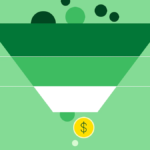Despite being an essential component of a company’s website design, many business owners pay little or no attention to the “about” page. It is tempting to use keywords like “innovation” and “excellence” and to hastily fill up your About page with an uninspired bio. But you’re losing out on a great chance if you don’t know the reasons why About Us page is important.
One of the most viewed sections on your website is the “About” section, which is an essential digital asset. The About page is where anybody who wants to learn more about your business will go. In addition to discussing the best practices for crafting an About page that presents your company in the best possible light, we’ll explain why an About page is an essential content component.
Why You Need ‘About Us’ Page

1. Establishing Trust and Credibility
Trust is a crucial component of any business relationship. One of the reasons why About Us page is important is that it provides an opportunity to present your brand’s story, mission, and values, helping to establish credibility.
When potential customers can see the faces behind a brand, learn about its history, and understand its purpose, they are more likely to feel a connection. This personal touch can differentiate your business from competitors who may have similar products or services but lack transparency and authenticity.
Example:
Consider a local bakery that shares its story on the “About Us” page, detailing how it was founded by a family passionate about baking. This narrative fosters a sense of community and trust, encouraging customers to choose this bakery over others.
2. Enhancing Brand Identity
One importance of the About Us page is that this page is a platform for defining your brand identity. It allows you to communicate what makes your business unique and what sets it apart from the competition.
By sharing your core values, mission statement, and vision, you can create a strong brand narrative that resonates with your target audience. This not only helps in brand recognition but also fosters loyalty among customers who align with your values.
Example:
A tech startup may use its “About Us” page to highlight its commitment to innovation and sustainability. This emphasis on values attracts like-minded customers and creates a distinct brand image.
3. Connecting with Your Audience
An engaging “About Us” page can forge a connection between your business and your audience. By sharing relatable stories, customer testimonials, or anecdotes about the founding of the company, you can create an emotional bond. This connection can lead to increased customer loyalty and advocacy, as customers feel more invested in a brand they can relate to.
Example:
A non-profit organization might share inspiring stories of individuals impacted by its work, making the “About Us” page a powerful tool for engagement and connection.
4. Boosting SEO and Website Traffic
From an SEO perspective, an “About Us” page can contribute to better search engine rankings. Search engines prioritize relevant and high-quality content, and an informative “About Us” page can help your website appear in search results. By including keywords related to your business, mission, and industry, you can attract organic traffic from potential customers searching for relevant information.
Example:
A travel agency that includes specific keywords about its services and destinations in its “About Us” content can improve its visibility in search engines, driving more traffic to its website.
5. Showcasing Team Members
People often want to know who they are doing business with. One of the reasons why the About Us page is important is that this page provides an opportunity to showcase your team members, their qualifications, and their passion for what they do.
Including photographs and brief bios can humanize your brand, making it more relatable. Customers appreciate knowing the individuals behind the business, which can enhance trust and foster connections.
Example:
A consulting firm might feature its team on the “About Us” page, highlighting each member’s expertise and contributions, thereby establishing credibility and authority in the industry.
6. Communicating Your Values and Mission
In today’s marketplace, consumers are increasingly conscious of the values and missions of the brands they support. An “About Us” page allows you to clearly articulate your business’s values, mission, and vision. This transparency helps consumers make informed choices and aligns their purchasing decisions with their personal beliefs.
Example:
A clothing brand focused on ethical sourcing and fair labor practices can use its “About Us” page to communicate these values, attracting consumers who prioritize sustainability and social responsibility.
7. Differentiating from Competitors
In a saturated market, it’s essential to stand out. An “About Us” page can differentiate your business by telling your unique story and highlighting your strengths. This differentiation can help potential customers understand why they should choose your brand over competitors.
Example:
A coffee shop might share its journey from sourcing beans from local farmers to crafting unique blends, emphasizing its dedication to quality and community, setting itself apart from larger chains.
8. Encouraging Engagement and Interaction
The importance of the About Us page is that an effective “About Us” page can encourage engagement and interaction. Including calls to action, such as inviting visitors to subscribe to a newsletter or follow your brand on social media, can create a pathway for ongoing communication. Engaging your audience in this way can foster a sense of community and belonging.
Example:
A fitness brand may encourage visitors to join its community by linking to its social media profiles and inviting them to participate in challenges, thereby enhancing interaction and brand loyalty.
9. Supporting Marketing and Branding Strategies
The “About Us” page plays a significant role in your overall marketing and branding strategy. It can be a key component of your messaging across various platforms, ensuring consistency in how you present your brand. A well-crafted “About Us” page can be shared in marketing materials, emails, and social media campaigns, reinforcing your brand’s identity and values.
Example:
A startup might use its “About Us” story in promotional videos, press releases, and social media content, creating a cohesive narrative that strengthens brand recognition and customer engagement.
Essential Elements to Include on Your “About Us” Page
The “About Us” page is a vital part of your website, serving as a window into your business. It provides visitors with insight into your brand’s identity, values, and mission. To create a compelling “About Us” page, know the reasons why the About Us page is important and consider incorporating the following essential elements:
Your Story: Begin with the narrative of how your business started. Share the inspiration behind its creation and any significant milestones along the way. This personal touch can help forge a connection with your audience.
Mission Statement: Clearly articulate your mission. What drives your business? What do you aim to achieve? A well-defined mission statement communicates your core purpose and helps visitors understand your priorities.
Core Values: Outline the values that guide your business decisions and interactions. These principles help customers gauge whether your brand aligns with their beliefs and can foster loyalty.
Team Introduction: Introduce your team members to humanize your brand. Include photos and brief bios that highlight their roles, expertise, and passions. This personal touch builds trust and creates a relatable image of your business.
Unique Selling Proposition (USP): What sets your business apart from the competition? Communicate your unique selling points—whether it’s exceptional service, innovative products, or a commitment to sustainability. This distinction can attract potential customers.
Customer Testimonials: Incorporate testimonials or success stories from satisfied customers. These endorsements provide social proof and can significantly enhance credibility, making potential customers feel more confident in choosing your brand.
Visual Elements: Consider adding engaging visuals, such as photos of your team, your workspace, or your products. Visuals can help break up text and create a more dynamic experience for visitors.
Call to Action (CTA): End your “About Us” page with a call to action. Encourage visitors to explore your products, subscribe to a newsletter, or follow you on social media. A CTA can help convert casual visitors into engaged customers.
Contact Information: Make it easy for visitors to reach out. Include contact information or a link to your contact page, inviting further engagement and questions.
By thoughtfully incorporating these elements, your “About Us” page can become a powerful tool for connection, trust-building, and brand loyalty. It not only informs visitors about your business but also invites them to be part of your journey.
FAQ
Q: Why is having an “about us” page important?
A: You have the chance to introduce yourself to prospective clients on this page. Establish credibility and trust by making use of this valuable piece of online real estate. A visitor to your website may not know anything about you unless you are a big, well-known business.
Q: What does the About Us page aim to achieve?
A: It’s a chance to introduce team members, convey your vision or goal, tell the narrative of your business, and highlight your accomplishments and history. Here’s where you gain clients’ confidence and trust.
Q: What is on the “about us” page?
A: A specific area of your website that gives background information about your company or group is called an “about us” page. You shouldn’t brag about your company or make a hard pitch on your “about” page. It should make it easier for visitors to comprehend your company’s identity, mission, and distinctive selling points.







